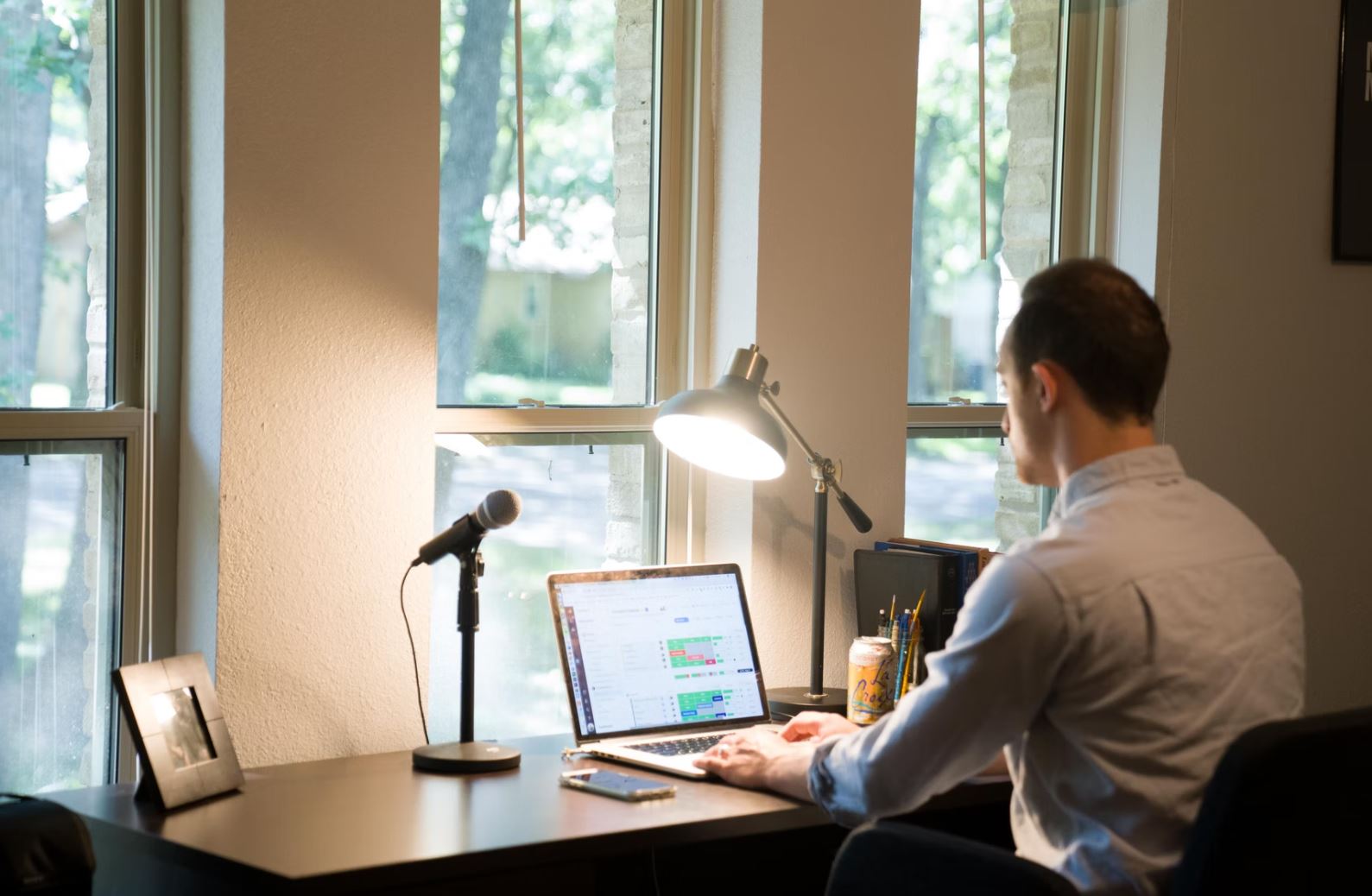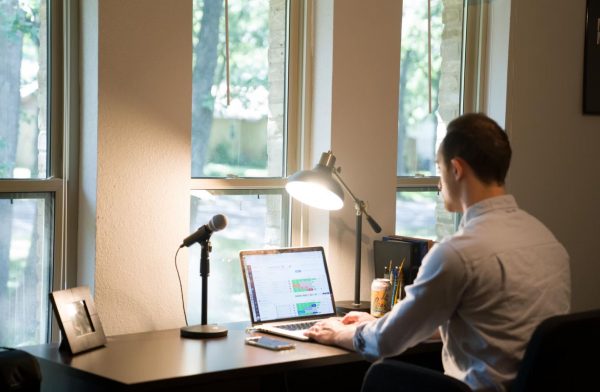The pros and cons of working from home

Working from home has become a way of life for many, but there are clearly many pros and cons in forgoing the daily commute to a physical workplace office.
The household insurance team at Adrian Flux have done their fair share of working from home in the past two years, and they have taken time out to outline the advantages and disadvantages of working from home.
Photo by Jason Strull on Unsplash.
The pros of working from home
From more flexibility to work when it suits you to more free time and cash in your pocket, there are many positives to working from home. Here are six of them.
More flexibility
When youâre working from home, you can better integrate the demands of your home life with those of your working life. You can fit in the appointments and errands you need to make time for, such as a check-up at the dentist or waiting in for a delivery. These commitments would be far more difficult to manage if you were at your place of work in another area from 9am-5pm.
More free time
The average commute time in the UK is now 62 minutes a day, according to a recent survey. Thatâs more than an hour a day youâll get back by working from home, which works out to around 10 full days a year.
You can save on expenses
With no commute thereâs no daily expenditure on fuel, rail or bus fares so, unless you live close to work and you cycle or walk each day, you will have more cash in your pocket to spend.
Youâll probably be more productive
There are fewer interruptions when youâre working remotely than there would be when you are in a crowded office. There will be no one wanting to talk about last nightâs TV or the weekendâs football results so you should be able to work more efficiently.
More time with family
A peck on the cheek may be your last contact with loved ones when you set off for work in the morning. When you telecommute, you can work alongside your partner or your children if they are home-based too. The time you save by not commuting will mean you have more down time with them after work as well.
You should have more energy
Travelling to work can be very tiring â especially if you are one of those commuting more than an hour each day â so ditching the daily commute should mean you have more energy.

Photo by Surface on Unsplash.
The cons of working from home
From poor work-life balance and missing out on company perks to higher utility bills, there can be quite a few negatives to telecommuting. Here are six drawbacks to working remotely.
Poor work-life balance
When youâre working from home, start and finish times can become blurred and you can find yourself at your screen late in the evening, perhaps checking and responding to emails. This can lead to a poor work-life balance.
You could miss your colleagues
We are social animals and we get comfort and joy out of working together. When you begin working from home, you may feel isolated and miss your colleagues, especially if you would normally bounce ideas off them, look to them for inspiration and socialise with them.
You may not get as much exercise
The daily commute is a big part of the working day and, as we said earlier, it can take considerable energy. If youâre not commuting you probably wonât be hitting your daily step target so youâll need to plan some other form of exercise into your day to help you stay fit.
More expensive domestic bills
If you have a home office and you use it on a regular basis, your utility bills will rise, because you will need to heat it and power it, and your internet costs may increase too.
You may find your food bill goes up as well as morning tea, afternoon coffee and the temptation to raid the fridge gets the better of you rather too often.
There is good news though: you may be able to claim tax relief on your work from home expenses.
You may miss out on company perks
Most companies provide staff with one or two perks. It may be something as simple as free tea and biscuits, cheap gym membership or 20 minutes on the pool table in a relaxation room. If youâre working from home you may miss out on them.
Emails and text can be misleading
It’s easy to misread electronic communications such as email, text and social media. Itâs hard to get the tone right in your communications and equally so to interpret messages sent to you by others. Thatâs because in face to face meetings and conversations, we read body language and facial expressions while also listening to the message we are receiving.

Photo by Ian Harber on Unsplash.
Consider your WFH options
If you get the chance of working from home permanently, you will need to consider the pros and cons and work out if it is right for you. Itâs definitely not right for everyone.
And if you do make the break and go for it, you will need to be confident that you have sufficient insurance cover to keep your home office equipment protected.
For a free no obligation work from home insurance quote call the team at Adrian Flux on 0800 369 8590 â 79.5% of all customers receiving an online quote in July 2020 could have obtained a cheaper quote over the phone, based on the information they provided.







